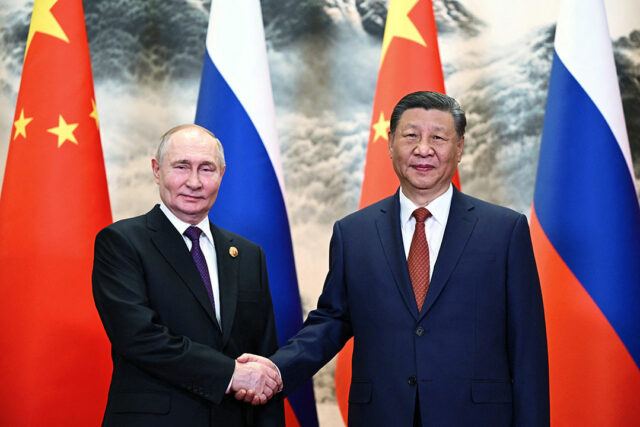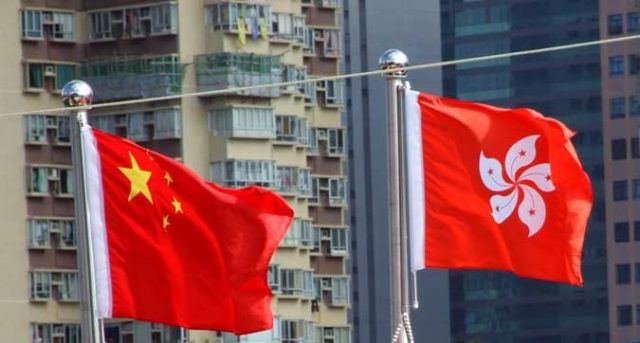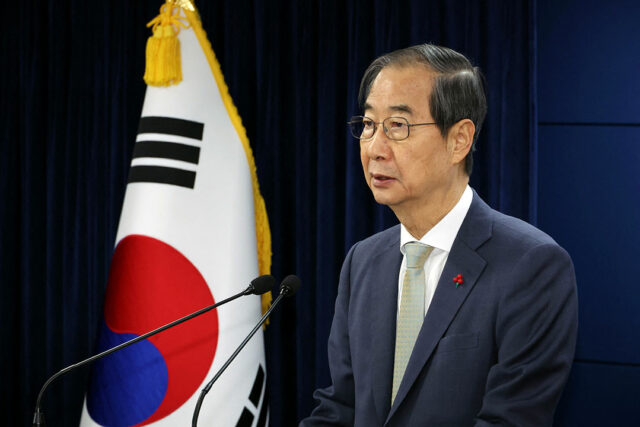THE National Government’s (NG) budget deficit widened to P213 billion in November, as revenue collections dipped and spending accelerated, Treasury data showed.
Data from the Bureau of the Treasury (BTr) showed the budget deficit more than doubled to P213 billion in November from P93.3 billion in the same month last year.
Month on month, this was a reversal of the P6.3-billion surplus in October.
 In November, revenue collections slipped by 0.61% to P338.3 billion from P340.4 billion a year ago, due to the 70.7% decline in nontax revenue collections.
In November, revenue collections slipped by 0.61% to P338.3 billion from P340.4 billion a year ago, due to the 70.7% decline in nontax revenue collections.
Nontax revenues plunged to P15.9 billion in November from P54.3 billion a year ago which included a one-off P23.8-billion remittance of additional dividends from the Bangko Sentral ng Pilipinas (BSP).
Revenues from the Treasury slumped by 80.86% year on year to P7.9 billion, while those from other offices fell by 37.83% to P8 billion.
On the other hand, tax revenues rose by 12.7% to P322.4 billion in November from P286.1 billion in the same month a year ago.
Collections by the Bureau of Internal Revenue (BIR) went up by an annual 17.77% to P247.6 billion in November.
“The year-on-year positive growth in the BIR collections for November 2024 can be attributed to the double-digit rise in collections from income taxes, value-added tax (VAT), excise taxes, and documentary stamp tax (DST). The increase in income tax can be attributed to the influx of taxpayers filing for their third Quarterly Income Tax Return on or before Nov. 15 of the current taxable year,” the BTr said.
Collections by the Bureau of Customs (BoC) fell by 1.69% year on year to P72.4 billion in November, “driven by lower year-on-year collections from import duties and excise taxes, but it was counterbalanced by higher VAT collections.”
Meanwhile, NG expenditures jumped by 27.13% to P551.3 billion in November from P433.6 billion a year ago.
“The notable expansion can be attributed to higher capital expenditures for road and defense infrastructure projects, social protection and education-related programs, as well as personnel services requirements,” the BTr said.
The faster spending in November was also attributed to the local government units’ (LGU) higher National Tax Allotment shares, as well as the release of special shares in the proceeds of national taxes.
Primary spending — which refers to total expenditures minus interest payments — rose by 25.85% to P484.6 billion year on year in November.
Interest payments increased by 37.29% to P66.7 billion in November from P48.5 billion in the same month in 2023.
WIDER DEFICIT
Meanwhile, the budget deficit ballooned to P1.18 trillion in the January-to-November period from the P1.11-billion deficit last year. This represents 79.29% of the P1.5-trillion full-year deficit ceiling.
For the 11-month period, revenue collection climbed by 15.16% to P4.11 trillion from P3.56 trillion a year ago.
“Nevertheless, the year-to-date collection of P4.11 trillion, which represents 96.12% of the P4.3-trillion revised full-year program, outperformed the previous year’s 11-month total by 15.16%,” the BTr said.
Tax collections went up by 11.51% to P3.55 trillion as of end-November. BIR revenues increased by 13.88% to P2.67 trillion, which already makes up 93.64% of the P2.8-trillion revised program.
Collections by the BoC inched up by 4.68% to P850 billion in the January-to-November period. This is equivalent to 90.46% of the full-year target of P939.7 billion.
“The positive year-to-date growth can be primarily attributed to the higher year-on-year collections from import duties, VAT, and excise taxes as a result of a higher value of non-oil imports (net of rice), PHP/USD exchange rate, and value and volume of petroleum oil imports, among others,” BTr said.
On the other hand, nontax revenues increased by 45.6% to P555.3 billion as of end-November.
The Treasury’s revenues rose by 7.57% to P232.7 billion due to “higher interest on advances from GOCCs (government-owned and -controlled corporations), guarantee fees, and the NG share from PAGCOR (Philippine Amusement and Gaming Corp.) income.”
“Furthermore, BTr’s year-to-date income has already surpassed the revised full-year program of P187 billion for 2024 by 24.43%,” it said.
Revenues from other offices surged by 95.46% to P322.6 billion in the 11-month period, surpassing the revised P262.6-billion full-year program by 22.84%.
For the January-to-November period, the government spending jumped by 12.96% to P5.28 trillion, accounting for 91.78% of the revised P5.8-trillion full-year expenditure program.
Primary spending increased by 11.4% to P4.6 trillion, while interest payments grew by 24.25% to P705.3 billion.
Rizal Commercial Banking Corp. Chief Economist Michael L. Ricafort said the November budget deficit mainly reflected the faster government expenditures.
“This also reflected increased debt servicing/interest costs amid increased debt incurred since the COVID-19 (coronavirus disease 2019) pandemic… and also amid still relatively higher interest rates locally and globally… and still relatively weaker peso exchange rate that increased the peso equivalent of foreign debt interest and principal payments,” he said.
Mr. Ricafort also pointed out the year-on-year decline in Customs revenues in November was “partly due to reduced tariff rate on imported rice that partly reduced government revenues.”
President Ferdinand R. Marcos, Jr. ordered rice tariffs to be cut to 15% from 35% previously, until 2028.
Customs Commissioner Bienvenido Y. Rubio earlier estimated around P16.34 billion in foregone revenue in the second semester due to the lower rice tariffs.
“One measure that would help reduce the NG’s budget deficit and also reduce additional borrowings/overall debt by the NG would be the increased remittance of dividends and surplus by some GOCCs,” Mr. Ricafort said.
Mr. Ricafort said further rate cuts by the BSP and the US Federal Reserve would help ease debt servicing costs and narrow the budget deficit.
“However, continued budget deficits in recent months would still lead to more National Government borrowings and overall debt, thereby would require more tax and other fiscal reform measures in an effort to bring down further the NG debt-to-GDP ratio to below the international threshold of 60%,” he added.
Filomeno S. Sta. Ana III, coordinator of Action for Economic Reforms, said despite the BIR’s “aggressive” efforts against smuggling, the tax effort has to increase.
“Still and all, tax effort has to increase but the administration dislikes increasing taxes even though some taxes are efficient and politically acceptable to the public like the ‘health taxes,’ taxes on alcohol, soda and ultra-processed food, vape and heated tobacco products, cigarettes,” Mr. Sta. Ana said. — Aubrey Rose A. Inosante














